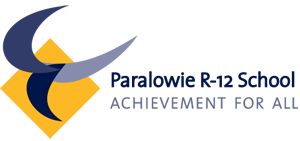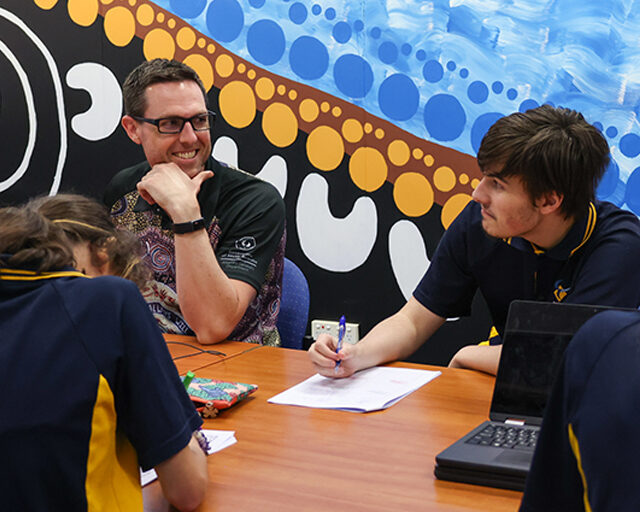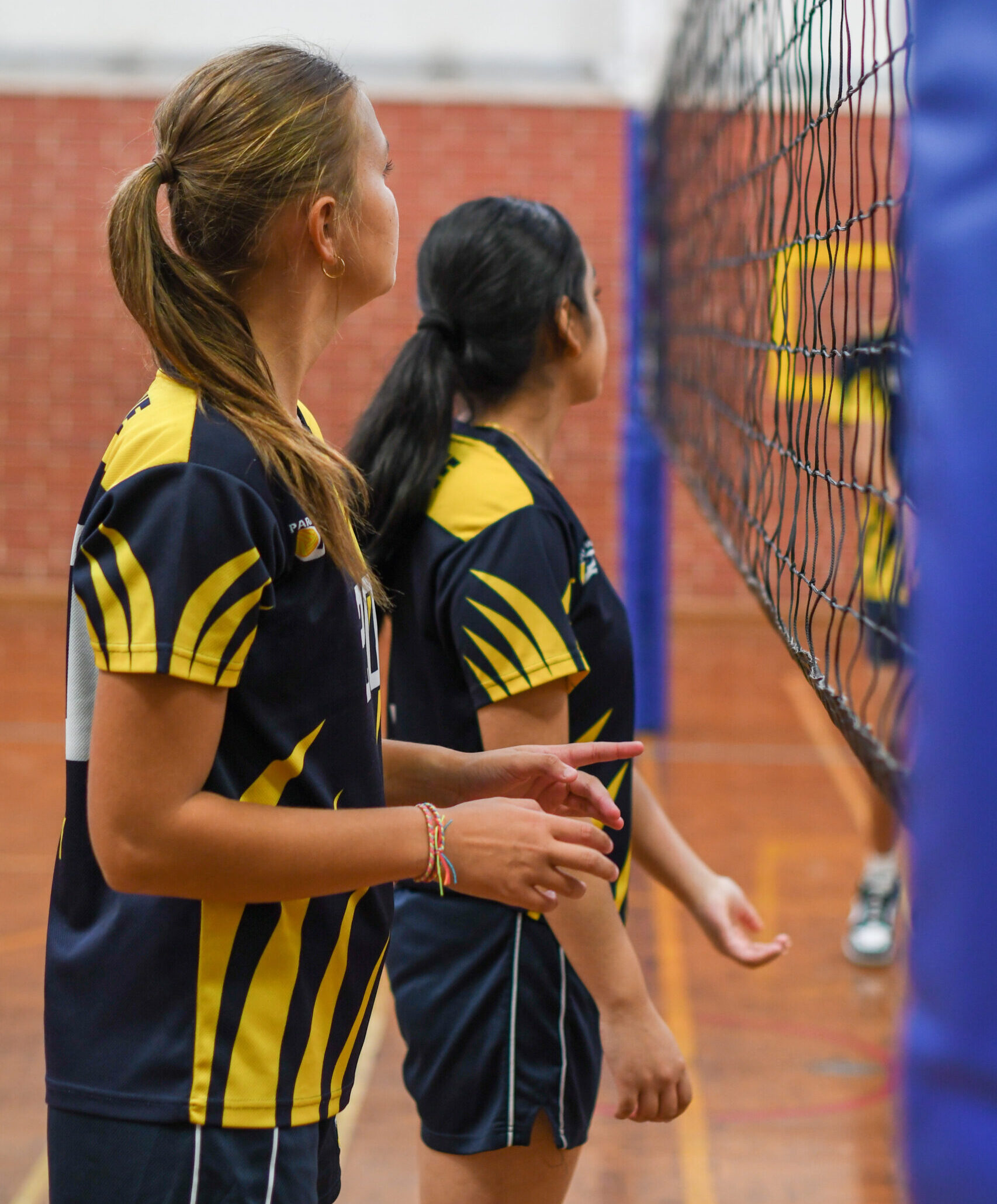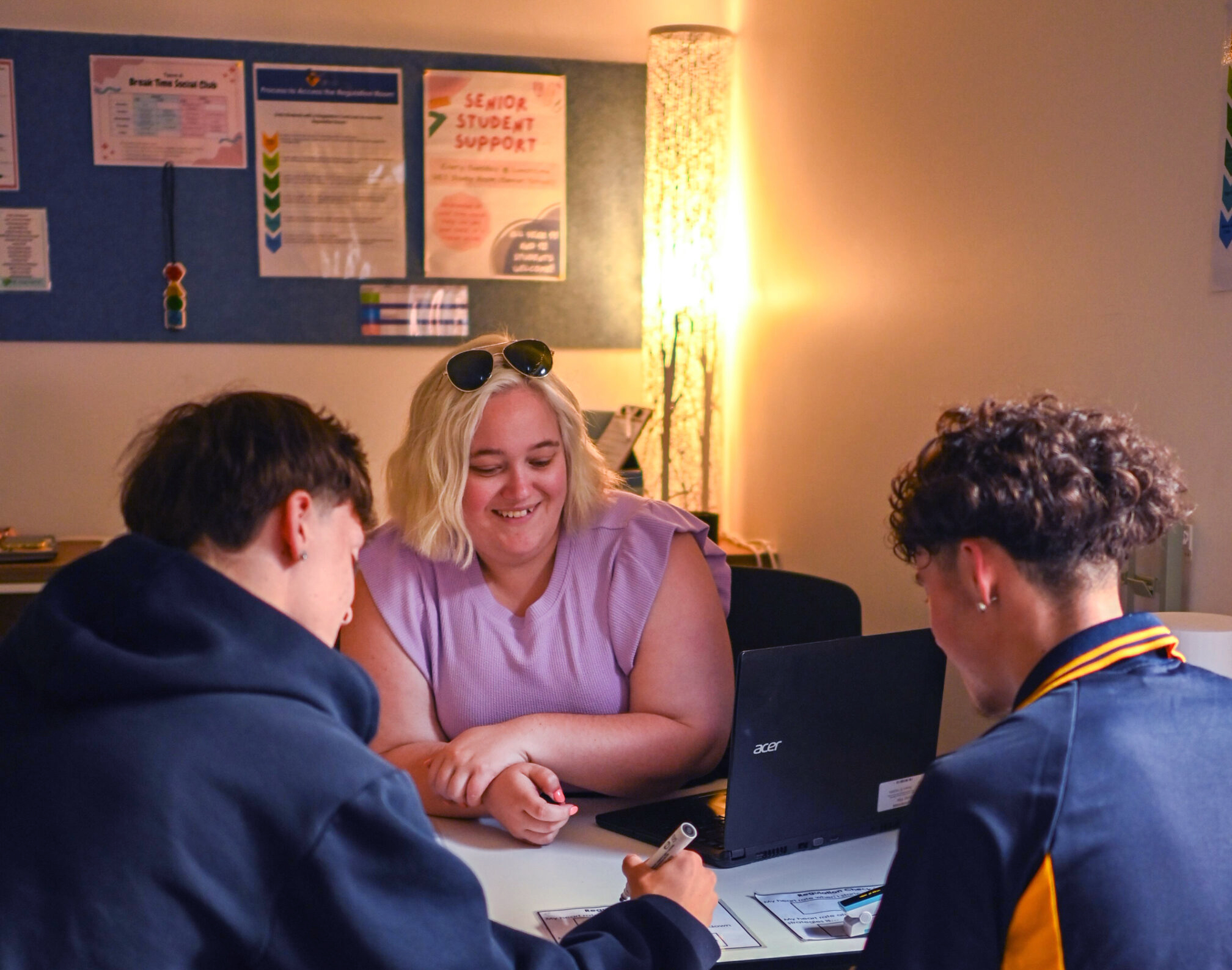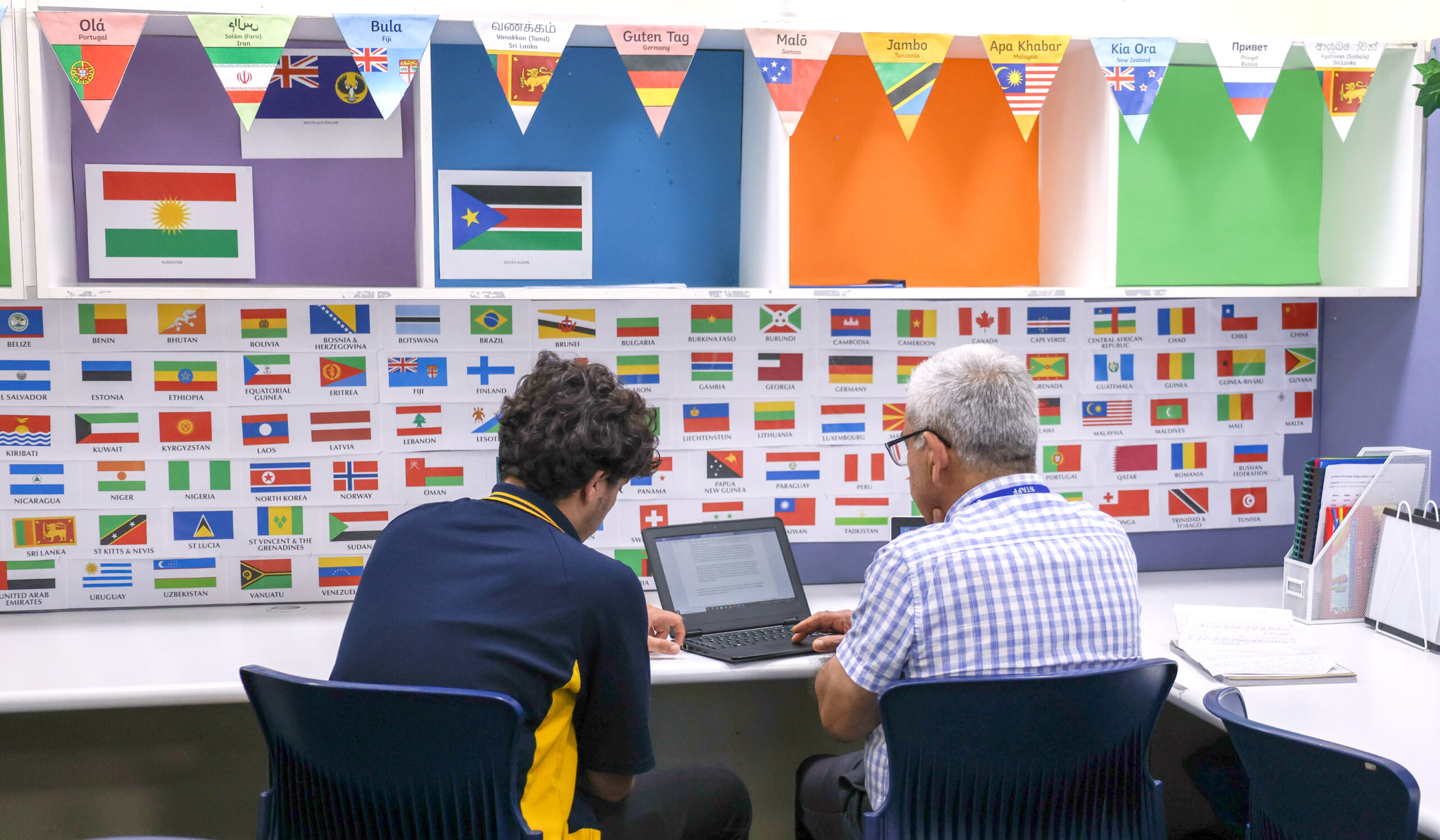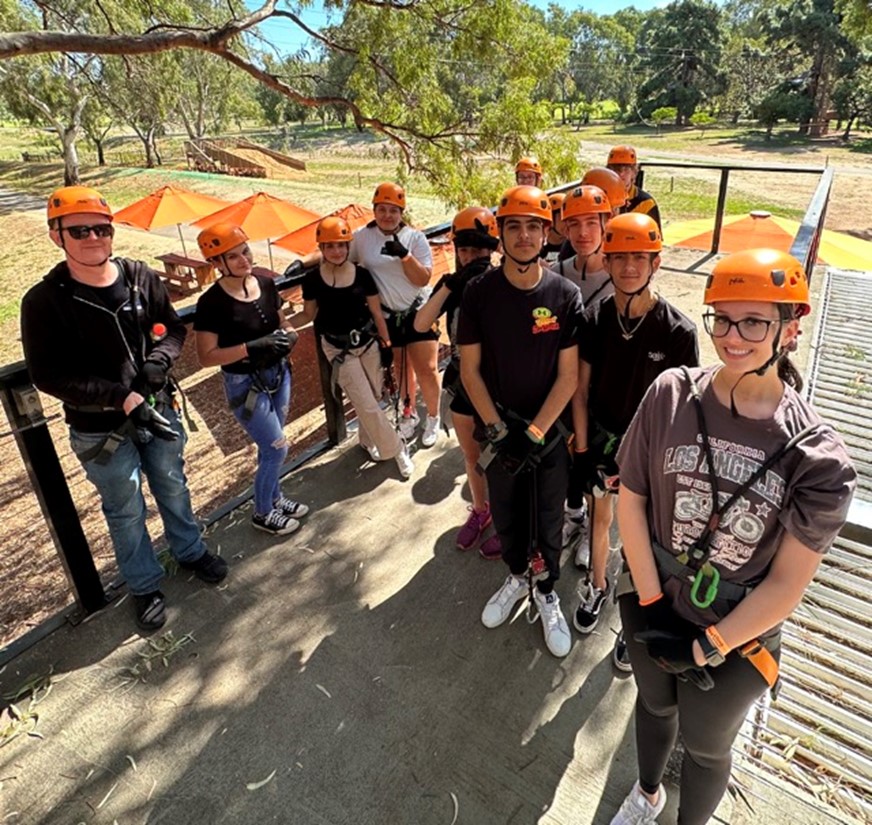Specialist programs
Find out about the specialist programs, enhancing student support for learning that our school offers.
Programs for our Aboriginal students
At Paralowie R-12 School we offer a range of programs to support our Aboriginal learners. These opportunities include:
- a dedicated space for our years 7 to 12 Aboriginal students, called Tirkanthi (Kaurna word for Learning)
- a dedicated space for our R to year 6 Aboriginal students called Turlatina (Kaurna word for Calm / Peaceful)
- academic, cultural and wellbeing support for all Aboriginal students
- Kaurna Language Program for Primary students
- the South Australian Aboriginal Secondary Training Academy (SAASTA) for Year 10-12 students
- the SAASTA Connect for year 9 students
- SAASTA Netball, Basketball and Soccer Academies, and Tjindu Football Academy
- the Workabout Centre’s Aboriginal Career Exploration (ACE) program and short courses
- GO Foundation Scholarships worth up to $2000 per year
- Clontarf Academy, which focuses on improving the education, discipline, life skills, self-esteem and employment prospects for our Aboriginal male students – download the Term 2 edition of Pelican Post, Clontarf’s Newsletter here.
- Stars Foundation, which offers mentoring support and opportunities to our female Aboriginal students.
Our Aboriginal programs and support are offered throughout the year, however scholarships and specialist academies open at specific times of the year.
Our Aboriginal programs exist to provide the support required for Aboriginal students to thrive academically, culturally and experience positive wellbeing, while setting them up for positive pathway options.
These programs have led to 100% SACE completion over a number of years, while also empowering students to connect more strongly to their culture and developing skills for the future pathways.
Specialist Sports Program and Paralowie Volleyball Academy
The Specialist Sports Program aims to provide a pathway for students in years 8 to 12 designed to nurture a culture of sporting and academic excellence. This program also runs alongside the curriculum and our schools Volleyball Program.
Program Structure
- Specialist Sport (full year) years 8 to 11
- Physical Education (year 12/SACE)
- Volleyball Studies (Integrated Learning) year 12/SACE
In addition, students in the Special Interest Sport Program are offered extra sporting opportunities include Athletics (Zone and SSASSSA), Tennis, Netball, Football, Soccer, Hockey, Rugby, Basketball, Touch, Cross Country, Volleyball, Golf, Fitness, Weightlifting, Badminton, Softball, Cricket, Rock Climbing, Aquatics, Table Tennis.
Students are also heavily involved in weekly sport in the Northern Zone, including European Handball, Netball, Basketball and Futsal.
The Paralowie Volleyball Academy (PVA) has been running since 2004 and aims to prepare students to participate in various competitions and activities focusing on areas such as skill development, teamwork, personal organisation, and general life skills.
This squad prepares participants for the Australian Volleyball Schools Cup held each year on the Gold Coast in December.
Selected students participate in 3 main events across the year:
- National Competition: The Australian Volleyball Schools Cup
- State Competition: South Australian Volleyball Schools Cup
- Year Level Knockout competitions across the year as part of the School Sport Program
Inclusive education
Paralowie R-12 School aims to support all students with disabilities or additional needs to achieve to their maximum potential in their learning, social skills and wellbeing.
There are two Inclusive Education teams within the school: R to 6 and 7 to 12. These teams work together and develop programs to ensure students receive required support throughout their schooling.
These teams work with families to create and manage OnePlans to ensure personalised and targeted learning is provided for all students with disabilities and additional needs. They also develop Inclusive Education Support Program (IESP) applications for students who have been identified as being eligible for additional support, to fund in-class SSO support or other Wave 3 interventions.
Our R-12 Inclusive Education interventions and supports include:
- Emotional Regulation Intervention and Supports (R to 6)
- Social Intervention (R to 6)
- Phonics Intervention (reception to year 9)
- What’s the Buzz Social Skills program (years 7 to 12)
- IESP Tutoring Program (years 8 to 10)
- Senior Study Support (years 11 to 12)
The 7-12 Regulation Room
The Regulation Room is an intervention space designed for secondary students who have difficulty with self-regulation and require explicit teaching and support to develop these strategies. This space has been developed through careful research and discussions with external support services.
This room is an intervention space to act as a Wave 2 intervention for students who have been identified by a leader as needing significant support with their social-emotional regulation skills. Leaders work in collaboration with parents or caregivers for those students to are eligible to access this space.
Students identified to access this space can use their Regulation Room pass to leave the classroom when feeling dysregulated. They then access the Regulation Room where they work with the staff member in this space to practice their identified regulation strategies, in order to be able to return to class, ready to learn.
The R-6 Interoception Room
Interoception is an internal sensory system where the internal physical and emotional states of the body are noticed, recognised, identified and responded to. A strong Interoception system is essential for effectively managing our connection to our environment and social connections and is embedded in daily practice in all class settings in R to 6.
As an additional support to our classroom practice, the Interoception Room is available for students who require a short break from learning to assist with regulation and management of emotions. The space was developed in collaboration with the Department for Education and Occupational Therapists and provides a tranquil setting for students to return to a state of regulation.
Students check in upon arrival using the Zones of Regulation scale, reflect on how they are feeling, perform an Interoception exercise and then have a short activity break before returning to class. Often this short break allows for a successful return to the classroom and engagement in learning, avoiding a continued escalation of dysregulated behaviour.
This supports the emotional regulation program our R-6 Intervention teachers run weekly (the Zones of Regulation), which helps students foster a greater understanding of self-regulation, emotional control and social skills.
R-6 Autism Inclusion Support
The Autism Inclusion Teacher role is a new, nation-leading initiative which aims to build capacity in teachers and promote inclusion in school communities. At Paralowie R-12 School, our Autism Inclusion Teacher provides the following supports and interventions:
- Lunch Clubs to support students with autism
- Autistic Student Voice group
- Supports teachers in providing adjustments, communicating with parents/carers, setting up an inclusive space, and engaging with evidence-based inclusive practises
- Supports autistic students with the years 6 to 7 transition.
EALD support and programs
EALD students are students who:
- Speak English as an Additional Language or Dialect
- Use different language(s) with their family and/or community
- Were born overseas OR in Australia
- Need support in developing their English language skills, so that they can succeed in their learning.
We support EALD students in different ways, helping EALD students to develop their skills in English and in their home language. EALD students learn best when they can learn about the English language and their own home languages.
Primary School (R to 6)
- First Language Maintenance Development (FLMD) Programs – These programs help students learn their home language if they speak Arabic, Dari or Vietnamese. Our Bilingual School Support Officers (BSSOs) teach these programs.
- BSSO Support – Our BSSOs support EALD students in different lessons. It will help students learn and use their home language in class.
- Language support – Our R-6 EALD Teacher teaches students in small groups, and they practice reading and writing in English.
- School of Languages – Students can study different languages with a language school called School of Languages after school hours.
Secondary School (7 to 12)
- BSSO Support
- Language support – EALD Teacher works with some students and teaches English language skills (e.g. grammar, reading, writing, pronunciation).
- EALD classes in Senior School – Year 10-12 students can study English in allocated EALD classes.
- School of Languages – Students can study different languages with a language school called School of Languages, and they can gain SACE points.
- Upskilling all staff – Our EALD Team helps teachers and other staff understand how they can support EALD students in classrooms.
Youth Opportunities
Our vision is a world where all young people have opportunities to be their best.
Through the Youth Opportunities personal leadership programs and wraparound services, we put young people in positive control of their own lives. Equipping them with the enterprise skills they need for the future, and developing their wellbeing and resilience to be prepared for any challenges they may face.
All evidence-based programs are designed to empower the individual and focus on developing long-term happiness, setting and achieving goals, increasing motivation, developing positive communication, enhancing confidence, and improving relationships. By becoming a personal leader, young people are given the skills, habits, and confidence to not only cope, but thrive.
Programs available:
- Activate Program (year 9)
- Personal Leadership Program (year 10)
- Project Prosper Leaders Group (year 12)
